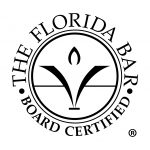The procedure for creditor claims in probate is very different as compared to other lawsuits:
Duties of the executor:
An executor administering a probate case must run a probate legal notice. The legal notice only needs to be published in one location, and not necessarily in the largest newspaper in the county. Also, the executor must send a notice by letter to all “reasonably ascertainable” creditors.
There may be exceptions for cases in a summary probate.
Also, there is an exception for anytime two years or longer after the decedent’s date of death. After two years all creditor claims are barred.
A creditor claimant:
A creditor attempting to assert a claim must file a probate claim within a very short time after receiving a letter notice and/or the publication of a legal notice. The time line for filing the probate claim varies depending upon: 1) whether the creditor received a letter notice, 2) whether the creditor was an ascertainable creditor, but the executor failed to send a letter notice, 3) when the publication of the probate legal notice occurred.
The time lines are short enough that anyone wishing to assert a legal claim should consult an estate specialist attorney right away, or risk losing the claim.
What if the creditor files a claim, but the executor objects to the claim?
If the executor objects to a probate claim in writing, assuming the probate claim was timely filed and in proper form, the creditor must file suit within 30 days of the objection.
Is there any way to obtain additional time?
For both the creditor claimant and the executor filing an objection there is the outside possibility of claiming “good cause” to get additional time (except for the 2 year after death bar). However, good cause is not easy to show, and it is not an easy matter to get additional time.
Bottom line conclusion?
The bottom line conclusion is that the “deck is stacked” against creditor claimants in probate. This is so because of the need to first file a claim, and second file a lawsuit if there is an objection. And each of these actions has strict and short time limits. The bottom line is that any creditor pursuing a claim in probate must proceed expeditiously by consulting an knowledgeable attorney immediately.




